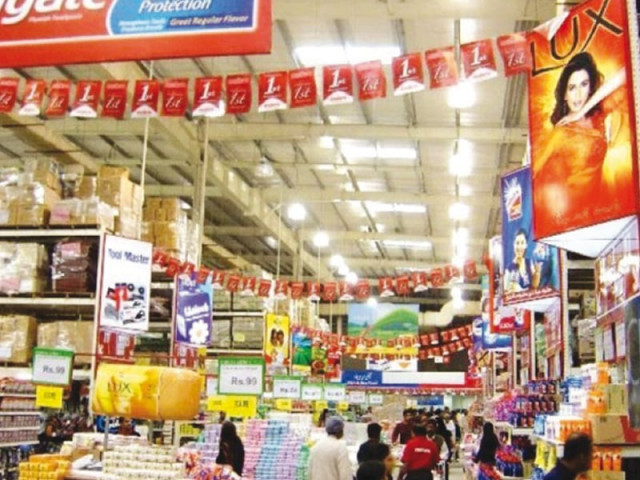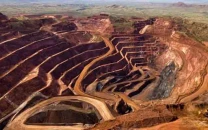Karachi bourse: Nestle becomes second largest company as stock rallies
Capitalisation hits Rs422b on the back of 32% rise in share price in a month.

The company’s stock, which traded at Rs7,043.75 per share on November 1, closed at Rs9,300 on the last trading day of the month. PHOTO: FILE
The company’s stock, which traded at Rs7,043.75 per share on November 1, closed at Rs9,300 on the last trading day of the month.
The recent gains in Nestle’s stock price, according to a report of Topline Securities, helped the company become the second largest listed firm on the Pakistani bourse – below market leader Oil and Gas Development Company whose capitalisation is over Rs1 trillion.
To put the numbers in simple terms, the Pakistani subsidiary of the world’s largest foods and consumer goods giant now accounts for 7.2% of the stock market or 1.8% of the country’s economy ($250 billion), the report said.
The abnormal gains, according to Topline Securities’ Senior Manager Research Zeeshan Afzal, were driven by two factors – limited opportunity for investment in the fast moving consumer goods (FMCG) sector and the growth in both the FMCG sector and the company.
After delisting of Unilever Pakistan, a subsidiary of the Anglo-Dutch consumer goods giant, and setbacks suffered by Engro Foods, Topline’s report said, investors had little choice for investment in the consumer goods sector.
Unilever Pakistan was delisted on September 13 this year, while Engro Foods showed a negative trend both in terms of revenues and profits in the first nine months of 2013.
The local foods giant saw its earnings decline by 23% year-on-year to Rs1.24 billion or Rs1.62 per share during the period. Its sales were down by over 4% to Rs28 billion.
Though investors had limited options for investment in the FMCG sector, the demand for this sector is generally very high, Afzal said. Additionally, he said, there are some investors who like to invest in the FMCGs as there is a growth factor as well.
Nestle Pakistan’s sales, in January-September this year, grew by 6.4% to Rs63.83 billion, resulting in after-tax profit of Rs4.47 billion or Rs98.58 per share, translating into a rise of 3.2% YoY.
The crazy bull-run in the company’s stock price, according to Topline’s report, has had implications for stocks of other companies that have invested in the Swiss foods and consumer goods giant.
IGI insurance, which has a 9.6% shareholding in Nestle, yielded 27% return in November, the report said. Nestle constitutes 84% of IGI’s total portfolio of Rs48 billion.
Packages Limited, which holds 8% of Nestle Pakistan, is another stock that was influenced by the recent rally in Nestle. In November, the report said, the value of Packages portfolio increased by Rs104 per share, up 30%, out of which Nestle contributed Rs98 per share.
The investors could be either fresh buyers or the ones that previously invested in Unilever Pakistan and/or Engro Foods, Afzal said while responding to a question. However, the trend – bull-run – is short term, he said.
Published in The Express Tribune, December 3rd, 2013.
Like Business on Facebook, follow @TribuneBiz on Twitter to stay informed and join in the conversation.



















COMMENTS
Comments are moderated and generally will be posted if they are on-topic and not abusive.
For more information, please see our Comments FAQ